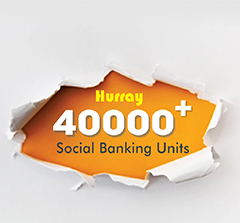Stem cells are master cells of the body :
They are primitive cells with the unique ability to differentiate, repair and rejenuvate. These are young cells & can differentiate into the different cell types. So, when the cells die or get damaged, these stem cells can be introduced in the damaged part where the stem cells multipl y limitlessly and replace the defective cells & restore the organ back to its normal functioning.
Why Store Stem Cells :
Blood & Immune cells have finite lifespan. When these cells die, Stem cells can
be introduced in the effected part where they differentiate into the replacing cell
type and bring the organ back to its normal functionality.
Stem cells are potentially useful for treating 80+ life threatening diseases that require stem cells transplant, , such as certain kinds of leukemia or lymphoma, aplastic anemia, severe sickle cell disease, and severe combined immunodeficiency.
![]()
Autologous Transplant :
In Autologous transplants, own stem cells are used for the transplant. However, treatment through own stem cells is limited and cannot be used for treating the diseases of genetic origin, metabolic and hematological disorders.
![]()
Allogeneic Transplants :
In Allogeneic transplants, healthy donor stem cells are used for the transplant. In hematological malignancies, allogeneic stem cells are preferred over autologous stem cells due to the proven therapeutic effect of graft-versus leukemia reaction, which occurs only in allogeneic transplantation.
Constraints with own stem cell :
Presently, treatments through own cord blood stem cells is limited. As per the medical associations, autologous stem cells cannot be used to treat diseases of genetic origin, metabolic disorders and hematological cancers.
Low Inventory :
As per the available data, Present inventory is not enough to meet the requirement of matched stem cells for the transplant.
High Cost :
Since the cost of processing and storage is free, public banks do charge for matched sample units, if required during the transplant.
In case of Adults & older patients, they may need double units of stem cells for transplant which further will increase the cost of procurement.
What is Social Banking ?
Social banking is a comprehensive solution for stem cell preservation which allows social banking members to access the large pool of stem cells. This increases the chance to get the matched stem cells at the time of transplant and reduce the dependability on public banks or bone marrow registry.
Cryoviva encourages an altruistic approach by incorporating the sharing of stored stem cells units under “Social Banking” for use by a needy patient from the society.
Why Social Banking is required ?
In the need of donor stem cells, one can procure them from public stem cell bank in which bank issues required quantity of matched stem cells at a certain cost. One can also procure matching stem cells from marrow donor registry. However, both the available options have their own challenges :
Public Stem Cell bank :
As per the available data, Indian public stem cell bank registries collectively have 6,000 units preserved whereas an estimated 2,50,000 units are required for >90% probability of finding a match.
Bone Marrow Registry :
Bone marrow registry is a voluntary process. As per the data provided by BMDW (Bone Marrow Donor Worldwide), it is clearly indicated that the number of stem cell donors in Asia is just 11 %, stating that of the world population; only 0.3 % is registered as a HSC’s donor. With such a small number of donors registered in these donor databases, it is really difficult as well as tedious to find a matching unrelated
This ultimately reduces your chance to find stem cells with exact HLA match. Even if we find matched donor stem cells the cost of procuring stem cells from public bank and bone marrow registry, is very high.
Address
Cryoviva Biotech Pvt. Ltd.
Plot 19, Sector 35, Gurugram,
Haryana 122004, India
Reach Us
© 2026 Cryoviva India. All rights reserved
